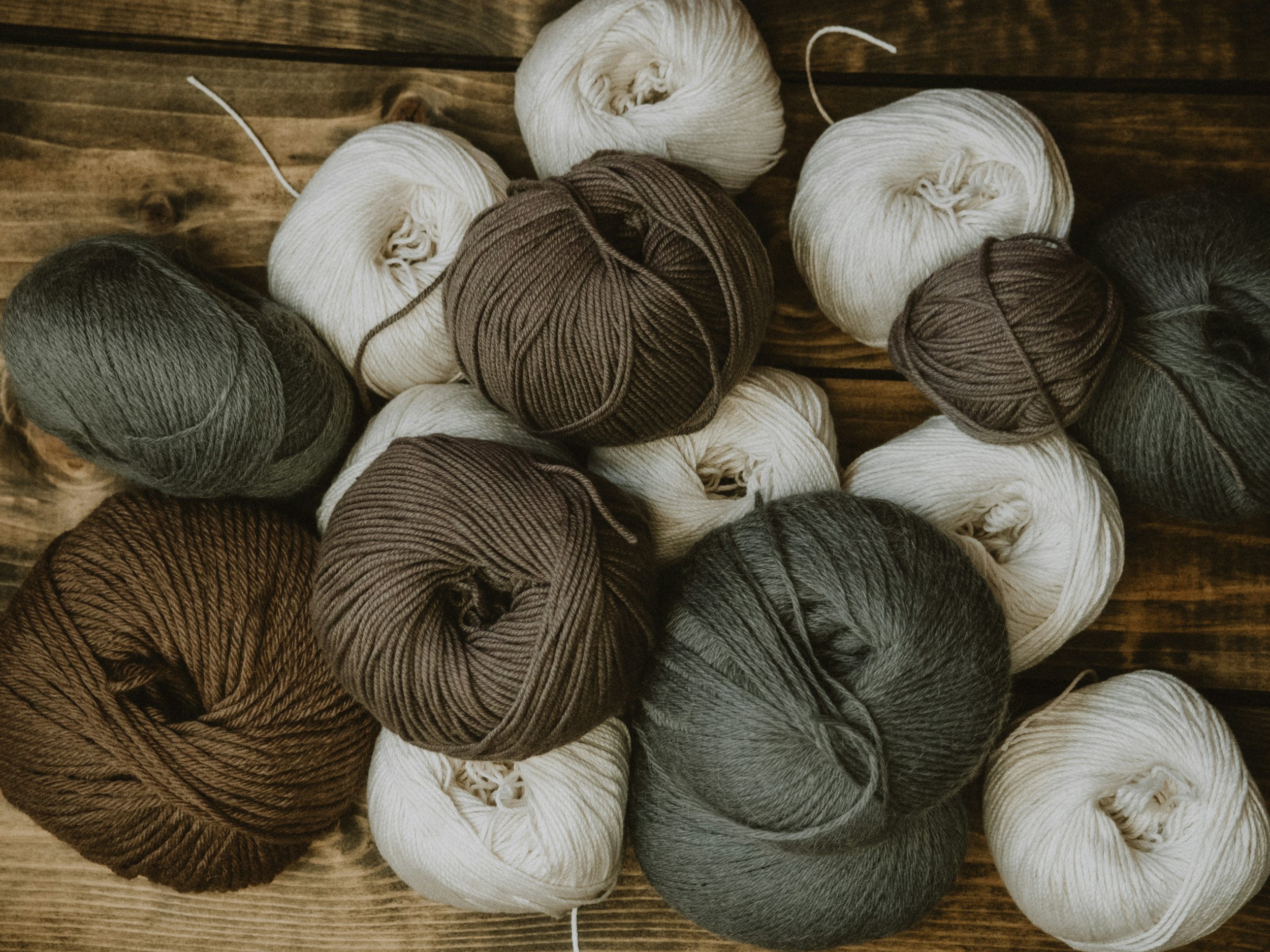Our Work
Our work highlights the research and insights of our community. Share your contributions by collaborating with ASO here. Subscribe to our free newsletter here.

ASO Annual Review - 2025 Alexander Technique Research & Insights
In our 2025 annual review, we reflect on a year of Alexander Technique inquiry spanning neuroscience, psychotherapy, integrative health research, and the embodied arts. This edition brings together a summary of interviews, research, and practitioner reflections exploring muscle tone regulation, wellbeing measures, gender and embodiment, trauma-informed practice, and personal reflection, highlighting the expanding connections of AT across disciplines.

Alexander Technique and Trauma: Exploring the Intersection
In this newsletter, we release a written piece by Niall Kelly who reflects on his observation that trauma responses can arise in Alexander Technique lessons. Drawing from his teaching practice and research into trauma, he shares examples from his work with students and invites reflection on how the AT community can engage more openly with this topic while staying within the scope of AT teaching.

Hands, Wrists, Fingers; Mind, Heart, Soul
This month we are posting a written piece by Pedro de Alcantara, author and Alexander Technique teacher. Pedro explores his experiences using his hands throughout his life, and he shares his thoughts about how miraculous the human hand is. This personal essay is based on Pedro's creative process while developing his new book on the subject.

Psychotherapy, Counselling, and Alexander Technique Teaching: An Interview with Brigitta Mowat
In this episode, Brigitta Mowat, AT teacher and psychotherapist, reflects on how these two disciplines intersect and inform each other. The conversation touches on her MSc research, the role of counselling skills in AT teaching, working with emotion in the teacher–student relationship, and how touch in AT may sometimes lead to emotional release.

Connected Conversations: Psychotherapy and the Alexander Technique
In this episode, Marcus James—AT teacher and psychotherapist—joins Lesley Glover to discuss how these two disciplines intersect and inform each other. Their conversation touches on working with emotion in an AT context, the overlap between AT and body-focused therapies, and how Marcus draws from both fields in his approach to teaching and care.

Capturing Well-being Outcomes: The Warwick Holistic Health Questionnaire and Its Relevance to Alexander Practice
This month, ASO’s Connected Conversations features Dr Nicola Brough, who presents the Warwick Holistic Health Questionnaire—a Patient Reported Outcome Measure designed to capture wellbeing outcomes in complementary health approaches. She discusses its development, use in craniosacral practice, and we explore it’s relevance for Alexander Technique teaching and research.

Connected Conversations: Exploring the Space Between – Alexander Technique and Craniosacral Therapy Practice
This month, ASO’s explores Connected Conversations with interviews featuring Alexander Technique teachers who integrate another professional practice alongside their teaching. In this episode, Adrian Farrell shares his embodied perspective on combining AT with craniosacral therapy—exploring touch, therapeutic roles, the challenges of articulating embodied experience, and more.

Alexander Technique, Gender, and Embodied Empowerment
In this episode, ASO revisits the theme of psychological and non-physical outcomes in Alexander Technique work, as explored in Kinsey and Glover’s realist review (see Episode 19). Erica Donnison interviews AT teacher Abi Wright, founder of She Stands, a AT based project focused on empowering girls and women to feel at home in their bodies and confident in taking up space.

Rethinking The Science of Muscle Tone - Part II
In this episode, ASO team member Erica Donnison continues her conversation with Dr. Tim Cacciatore, co-author of the open-access paper Central Mechanisms of Muscle Tone Regulation. Tim explores how these findings connect to key concepts in Alexander Technique teaching. A must-watch for teachers, trainees, and students. Paper linked in the article.

Rethinking The Science of Muscle Tone - Part I
In our 50th episode, Erica Donnison interviews Dr. Tim Cacciatore on muscle tone regulation, its role in balance, pain, and performance, and its significance for AT practitioners and clinicians. He addresses misconceptions about the reflex model and highlights how modern neuroscience advances our understanding of AT. Stay tuned for Part II. The paper linked here is open-access.

Bridging Practice and Research: Insights for Alexander Technique from Acupuncture Care and Research
In Episode 49, we explore the intersection of practice and research with Mandy Brass, MSc, a Traditional Chinese Medicine acupuncture practitioner. Mandy shares insights from her service evaluation at Dimbleby Cancer Care, an integrative oncology center in London. Using self-report measures, she captured her patients' experiences, offering valuable lessons for Alexander Technique teachers seeking to integrate research into their professional development.
Archive
-
2026
- Jan 3, 2026 Applying the Alexander Technique in Dentistry: A Conversation with Dr Anikó Ball Jan 3, 2026
-
2025
- Dec 6, 2025 ASO Annual Review - 2025 Alexander Technique Research & Insights Dec 6, 2025
- Nov 1, 2025 Alexander Technique and Trauma: Exploring the Intersection Nov 1, 2025
- Oct 4, 2025 Hands, Wrists, Fingers; Mind, Heart, Soul Oct 4, 2025
- Sep 6, 2025 Psychotherapy, Counselling, and Alexander Technique Teaching: An Interview with Brigitta Mowat Sep 6, 2025
- Jul 12, 2025 Connected Conversations: Psychotherapy and the Alexander Technique Jul 12, 2025
- Jun 7, 2025 Capturing Well-being Outcomes: The Warwick Holistic Health Questionnaire and Its Relevance to Alexander Practice Jun 7, 2025
- May 3, 2025 Connected Conversations: Exploring the Space Between – Alexander Technique and Craniosacral Therapy Practice May 3, 2025
- Apr 5, 2025 Alexander Technique, Gender, and Embodied Empowerment Apr 5, 2025
- Mar 4, 2025 Rethinking The Science of Muscle Tone - Part II Mar 4, 2025
- Feb 4, 2025 Rethinking The Science of Muscle Tone - Part I Feb 4, 2025
- Jan 7, 2025 Bridging Practice and Research: Insights for Alexander Technique from Acupuncture Care and Research Jan 7, 2025
-
2024
- Dec 3, 2024 ASO Annual Review - 2024 Alexander Technique Research & Insights Dec 3, 2024
- Nov 5, 2024 Capturing Experience: Exploring Self-Report Measures in Alexander Technique Research Nov 5, 2024
- Oct 1, 2024 Exploring the Wisdom of Senior Teachers: Ruth Rootberg on 'Living the Alexander Technique’ Oct 1, 2024
- Sep 3, 2024 Putting the body back into prayer Sep 3, 2024
- Jul 2, 2024 Time as an element in the curriculum at The Royal College of Music Jul 2, 2024
- Jun 4, 2024 Part II - How can learning and using the Alexander Technique enable us to reduce and better manage chronic pain? Jun 4, 2024
- May 7, 2024 How can learning and using the Alexander Technique enable us to reduce and better manage chronic pain? May 7, 2024
- Apr 2, 2024 In Conversation: Regina Stratil's Path to Uncovering Irene Tasker's Story Apr 2, 2024
- Mar 5, 2024 How Alexander Technique lessons can help family carers - Part II Mar 5, 2024
- Feb 6, 2024 Partnering with Poise – Research into how Alexander Technique lessons can help family carers Feb 6, 2024
- Jan 2, 2024 Acoustic and Perceptual Effects of Alexander Technique Lessons Jan 2, 2024
-
2023
- Dec 5, 2023 A Year of Exploration: Annual Review & Research Discoveries Dec 5, 2023
- Nov 7, 2023 Restoring carers to themselves through the Alexander Technique Nov 7, 2023
- Oct 3, 2023 Opera and Alexander Technique: What are the connections? Oct 3, 2023
- Sep 5, 2023 An Interview with Monika Gross: Alexander Technique Research & Collaboration Sep 5, 2023
- Jul 4, 2023 Why research the Alexander Technique? Jul 4, 2023
- Jun 6, 2023 Soma in the City: How does listening and responding to a ‘somatic podcast’ drawing on the Alexander Technique, affect one’s relationship with urban space? Jun 6, 2023
- May 2, 2023 Why have a curriculum for an experiential practice? May 2, 2023
- Apr 4, 2023 Lighten Up! A conversation with Rajal Cohen - Part II Apr 4, 2023
- Mar 7, 2023 Lighten Up! A conversation with Rajal Cohen - Part I Mar 7, 2023
- Feb 7, 2023 Embodied practices, the Alexander Technique, and self-compassion: An interview with Lisa Harris Feb 7, 2023
- Jan 3, 2023 ‘What on earth do we do with this data?’ Two experiences of writing up research for publication Jan 3, 2023
-
2022
- Nov 1, 2022 Alexander Technique group lessons in an exercise program for women following treatment for breast cancer: An Interview with Alazne Larrinaga Nov 1, 2022
- Oct 4, 2022 A New Alexander Technique Publication in the British Medical Journal on Low Back Pain: An Interview with Carolyn Nicholls Oct 4, 2022
- Sep 6, 2022 The Healthy Young Musician Project: Alexander Technique Research at the Royal Academy of Music Sep 6, 2022
- Aug 2, 2022 Violin, Science, and the Alexander Technique: An Interview with Researcher Alison Loram and Special Guests Aug 2, 2022
- Jul 5, 2022 Is it time to take stock of Alexander Teacher education? Research offers the means whereby. Jul 5, 2022
- Jun 7, 2022 A Technique for Musicians Jun 7, 2022
- May 3, 2022 Psychological and other ‘non-physical’ changes following Alexander Technique lessons May 3, 2022
- Apr 5, 2022 Finale - Working With Musicians: Application of The Alexander Technique to Music Making Part III Apr 5, 2022
- Mar 1, 2022 Working With Musicians - Application of The Alexander Technique to Music Making Part II Mar 1, 2022
- Feb 1, 2022 Working With Musicians - The Application of The Alexander Technique to Music Making Part I Feb 1, 2022
- Jan 4, 2022 One year into the Alexander Studies Online project - how are we doing? Jan 4, 2022
-
2021
- Dec 7, 2021 How Women Use The Alexander Technique In The First Year After Birth Part III Dec 7, 2021
- Nov 2, 2021 How Women Use The Alexander Technique In The First Year After Birth Part II Nov 2, 2021
- Oct 5, 2021 How Women Use The Alexander Technique In The First Year After Birth Oct 5, 2021
- Sep 7, 2021 Building a new, open-access database of Alexander Technique research. Sep 7, 2021
- Aug 3, 2021 Looking both ways: A new teacher’s perspective on uncertainty Aug 3, 2021
- Jul 20, 2021 ATLAS commentary Parts III and IV Jul 20, 2021
- Jul 6, 2021 ATLAS commentary Parts I and II Jul 6, 2021
- Jun 1, 2021 Potential Mechanisms of the Alexander Technique: Toward a Comprehensive Neurophysiological Model Jun 1, 2021
- May 4, 2021 ATEAM Commentary Part II May 4, 2021
- Apr 5, 2021 ATEAM Commentary Part I Apr 5, 2021
- Mar 2, 2021 Learning from People Living with Parkinson’s Disease: Ten tips from the field Mar 2, 2021
- Feb 2, 2021 Disciplined inquiry and the Alexander Technique teacher: What is it, why do it? Feb 2, 2021
- Jan 27, 2021 Pt. II of Supporting People with Dementia: a Role for Alexander Technique Teachers? Jan 27, 2021
- Jan 27, 2021 Pt. I of Supporting People with Dementia: a Role for Alexander Technique Teachers? Jan 27, 2021
- Jan 5, 2021 The ASO Newsletter - 2nd edition Jan 5, 2021
-
2020
- Dec 1, 2020 The ASO Newsletter - 1st edition Dec 1, 2020
- Oct 18, 2020 Welcome: An Overview of ASO Oct 18, 2020